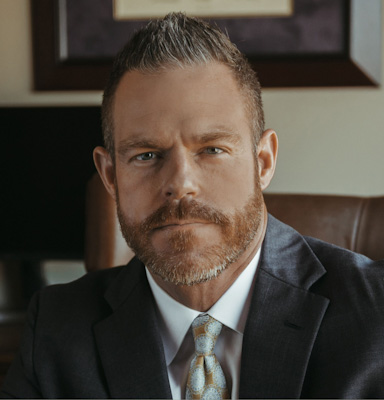True-crime stories, like heavy metal, don't create criminals

There is definitely a subset of society that doesn’t enjoy true crime for the educational or innocent entertainment value. Instead, some like the documentaries because of their morbid fascination with death. Image from Shutterstock.
Documentaries about murder should be an educational resource, to one extent or another, but sometimes become nothing more than a vehicle to glorify a criminal at the expense at the expense of the victims and their families.
Many of the offerings, right or wrong, question the integrity of our justice system as a whole. Still, at the end of the day, I think that the genre does more to benefit the public’s understanding of a complicated aspect of our society, flaws and all.
People love true-crime documentaries for a variety of reasons. For most, it allows them the opportunity to pull the curtain and see what’s behind a process that somewhat seems to be shrouded in mystery, unless you deal with it firsthand. Moreover, humans are naturally curious, and many of us love to play detective.
However, there is definitely a subset of society that doesn’t enjoy true crime for the educational or innocent entertainment value. Instead, some like the documentaries because of their morbid fascination with death.
Interest vs. obsession
Jung Yoo-jung, 23, had been obsessed with “crime shows” and novels and was set on the notion of “trying out a murder,” the BBC reported. Consequently, she met with a stranger and stabbed her to death.
Prosecutors revealed that Yoo-jung had used an online tutoring app for months in attempts to find a victim for her perverse obsession. She had gone so far as to contact more than 50 people under the guise of seeking English-language tutoring. After finding her victim, Yoo-jung stabbed her more than 100 times and dismembered the woman’s body.
Yoo-jung claimed to have suffered from hallucinations and other mental health issues at the time of the crime. She also confessed that crime shows and related television programs had been the catalyst for her murderous intentions. A court found that the murder was “carefully planned and carried out, and it is difficult to accept her claim of mental and physical disorder,” the BBC reported. She ultimately received a life sentence.
I’ve spoken with countless individuals about their love for the true-crime genre; not one has told me the shows that they view create curiosity as to what it would be like to kill another human. First off, few people would admit that prior to acting out if they actually did harbor such an interest. Second, neither a television show nor any other form of media is going to push someone to the point of murder if they aren’t already standing on the ledge and ready to jump into that evil abyss already.
The flawed causation that Yoo-jung argues reminds me of the war on heavy metal music in the 1980s and the notion that the songs’ lyrics would harm the psyche of young adults. There were various new stories of young adults committing crimes because they were professedly influenced by that type of music. There were families alleging that their loved ones died by suicide because of the music that they were listening to. I didn’t believe it then, and I especially don’t believe it now.
It’s nothing more than a scapegoat. Sometimes people need a reason to explain things that they otherwise don’t understand. Or people just need an excuse to try and save their hide. In both situations, the easiest thing to do is to point the finger somewhere else and shift the blame.
Uncaging the monster
I’ve represented numerous people charged with committing violent crimes. Whether it’s a murder case or some other act of violence, I’ve come to a few conclusions regarding those actions.
Many people simply aren’t capable of intentionally causing great bodily harm to another person, unless they are forced into a situation where it is kill or be killed. I also think that there are some people who would be unable to use deadly force against another person even in that situation.
Most importantly, the desire or ability to kill without legal justification doesn’t just develop overnight. I’m not sure whether such a disposition depends more on nature or nurture, but I think it probably involves a combination of both.
Curiosity only goes so far
I won’t sit here and write that no causation exists between the things that we experience and the impressions that we are left with from those experiences. We assimilate as a survival mechanism; it follows that we are creatures of our environment to a certain degree.
But still, that can’t be the end-all be-all. There have been plenty of times in my career where I’ve argued that. But for some unfortunate circumstance that my client experienced, they likely wouldn’t have been in a situation to need my assistance. People who are subjected to abuse often perpetuate abuse, for example. I’m not sure whether it’s because it becomes normalized, they become desensitized or because it completely alters how they perceive their reality. But it happens.
Does our environment also influence the things that we’re curious about and the amount of curiosity that we exhibit? Sure. But arguing that you committed murder simply out of curiosity caused by a television show? That’s a tough sell.

Adam Banner
Adam R. Banner is the founder and lead attorney of the Oklahoma Legal Group, a criminal defense law firm in Oklahoma City. His practice focuses solely on state and federal criminal defense. He represents the accused against allegations of sex crimes, violent crimes, drug crimes and white-collar crimes.
The study of law isn’t for everyone, yet its practice and procedure seems to permeate pop culture at an increasing rate. This column is about the intersection of law and pop culture in an attempt to separate the real from the ridiculous.
This column reflects the opinions of the author and not necessarily the views of the ABA Journal—or the American Bar Association.



